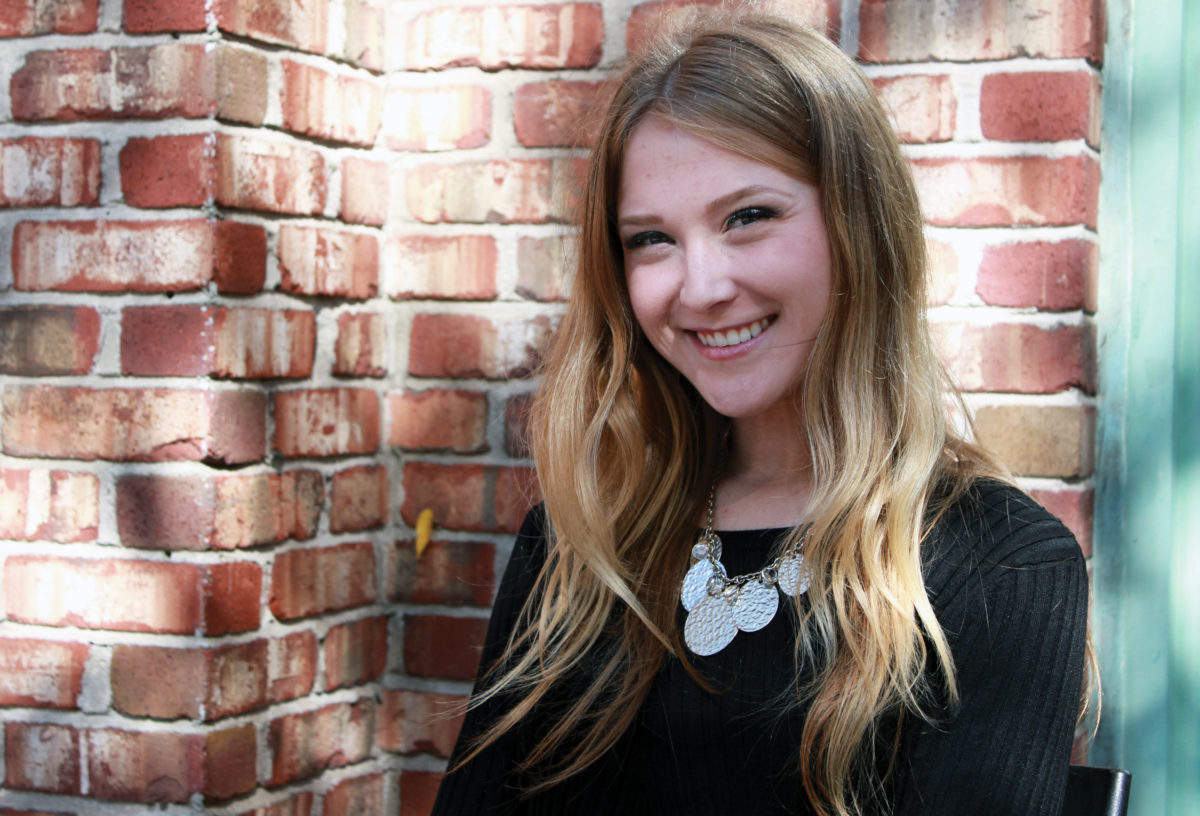Lauren Harris got drunk for the first time when she was 15 years old, like many Canadian teenagers. She went to a party in Woodstock with her cousin and tried her first several sips of alcohol. It’s not remarkable.
But most teenagers don’t develop into alcoholics by the time they’re 17.

“I was 17 years old and I would be drinking at 8 o’clock in the morning. And I would drink and drive all the time,” said Harris. “I’ve been caught, but I’d smooth-talk my way out of it.
“There’s no better actor than the alcoholic.”
Now, at 20, Harris is attending Alcoholic Anonymous meetings to control her addiction. The fourth year STU student goes to meetings about six times per week, every week. According to Statistics Canada, the highest rate of heavy drinking occurs in people aged 18 to 34. In spite of that, only two per cent of A.A. members are under 21. The highest demographic in A.A. is between 51 and 60. Harris is always the youngest person in her group by about ten years.
“Going to A.A., I had a lot of the members say, ‘You know, I really wish I would have worked on my problem at your age’,” said Harris.
But escapism knows no demographic. She started drinking as a teenager because alcohol abuse was normalized in her family. She was always around alcohol and she learned that as long as her life seemed on track externally, that’s all that counted. She buried her problems with eating disorders at first, then alcohol. She was sexually assaulted by a family member at 14.
“(Drinking) was an emotional release,” said Harris. “Like I discovered a whole new world.”
She spent her teenage years drinking with her boyfriend and cruising around. She’d hop over the Canada/U.S. border to steal liquor, bring some back to bootleg to her friends and drink the rest herself. She was caught drinking and driving by police nine times, but was always slapped with an open liquor fine instead of a DUI. She’d turn on the tears and say a friend was coming to pick her up. But she’d be behind the wheel again in minutes.
“It had me justifying that I couldn’t have been that bad of an alcoholic if the police officer didn’t acknowledge it,” she said.
Harris said her drinking didn’t really worsen when she got to university because it had always been terrible. She would regularly show up to classes drunk and no one noticed. She was always a good student – another justification. She never admitted there was something wrong with how much she drank. Last July, Harris hit a critical level.
“That last time that I drank, I was missing four to six hours where I didn’t know what happened,” she said. “I woke up next to a telephone pole. My phone had been stolen and the person who had stolen it convinced my parents I was kidnapped.”
When she came to the next day, she tried to recall her night. Or her week. Or her month. But nothing was coming up because she’d black-out for most of every day. She had no memory of several weeks of her life.
“I realized I was not living,” she said. “I thought I’d be dead before I was sober.”
Now that she’s in A.A., Harris said she has to remove herself from situations with drinking, which excludes her from a lot of university experiences. She was told by the people surrounding her that she was just doing what kids do when she blacked out every day. Harris said social binge drinking helps young alcoholics justify their drinking to themselves. She said she faces more pressure to continue drinking than she ever did to stop and this has cost her some friendships. But she’s so afraid to relapse she has nightmares about drinking.
“I have to accept the things I cannot change, and I cannot change other people’s situations in their drinking habits and I can’t judge,” she said. “I can only control myself.”
And she does. She went through a week of detox after she was sober for a couple weeks to ride out the withdrawals, she sees a counsellor and she’s vigilant in attending A.A. Through counselling and group therapy, she said she can look herself in the mirror now. She reads a lot and returned to her spirituality. She talks freely about her experience because she wants other people her age to know they can ask for help if they need it.
“I have no shame because it’s a part of who I am,” said Harris. “If anyone at all ever needs a hand, I will always be there without judgement and I will love them. Yeah, that’s all I want to do.”

